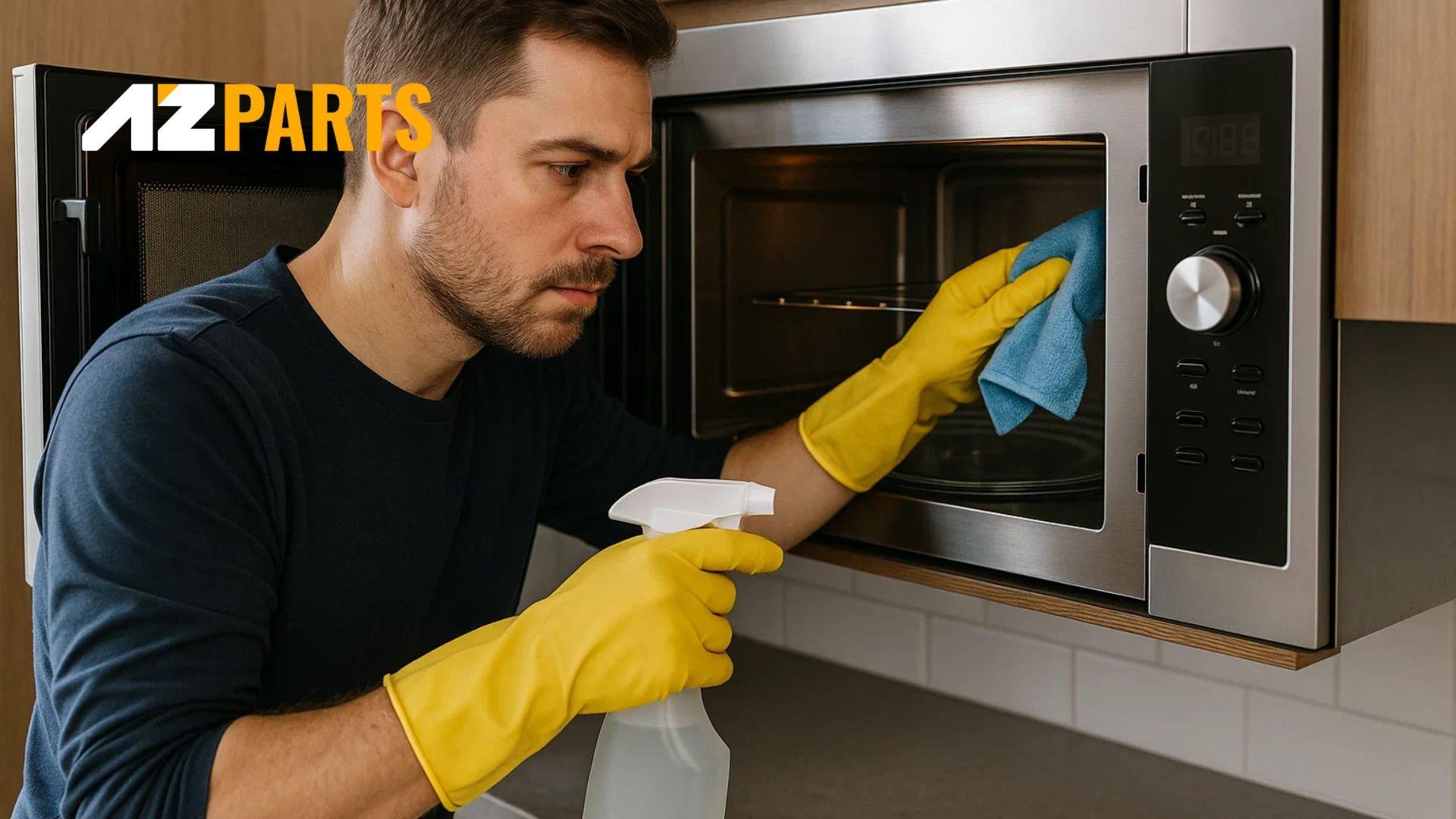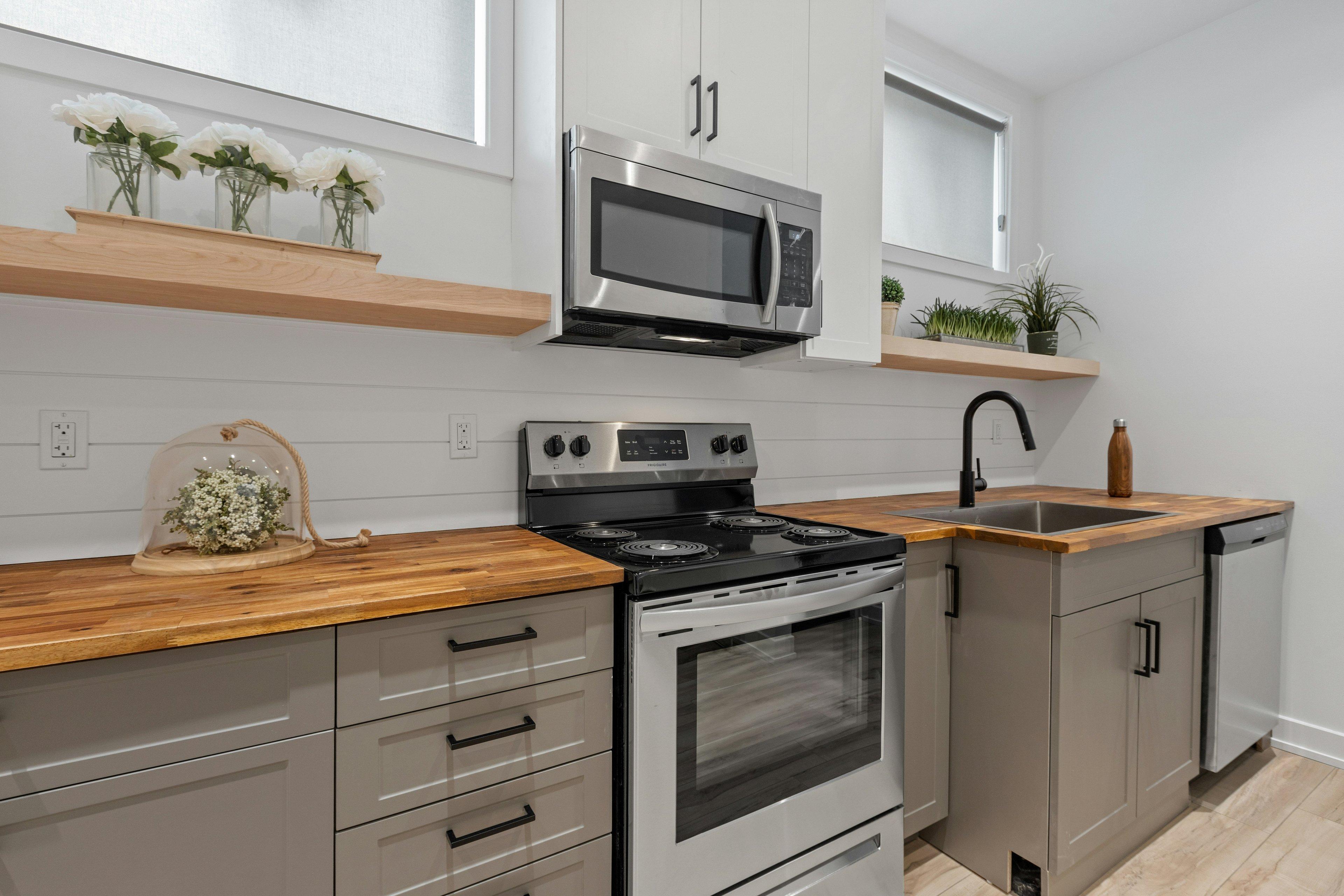Review
Is It Worth Repairing a Microwave? A Practical Guide for 2025
AZparts Team
Updated on July 31, 2025
7 min read
When your trusty microwave starts acting up, you're faced with a common household dilemma: is it worth repariting a microwave or replace it? This decision becomes increasingly complex as technology advances and repair costs fluctuate. Understanding the key factors that influence this choice can save you both money and frustration. At AZParts, we specialize in providing genuine replacement parts for various appliances, including microwaves, helping homeowners make informed decisions about their kitchen equipment repairs.
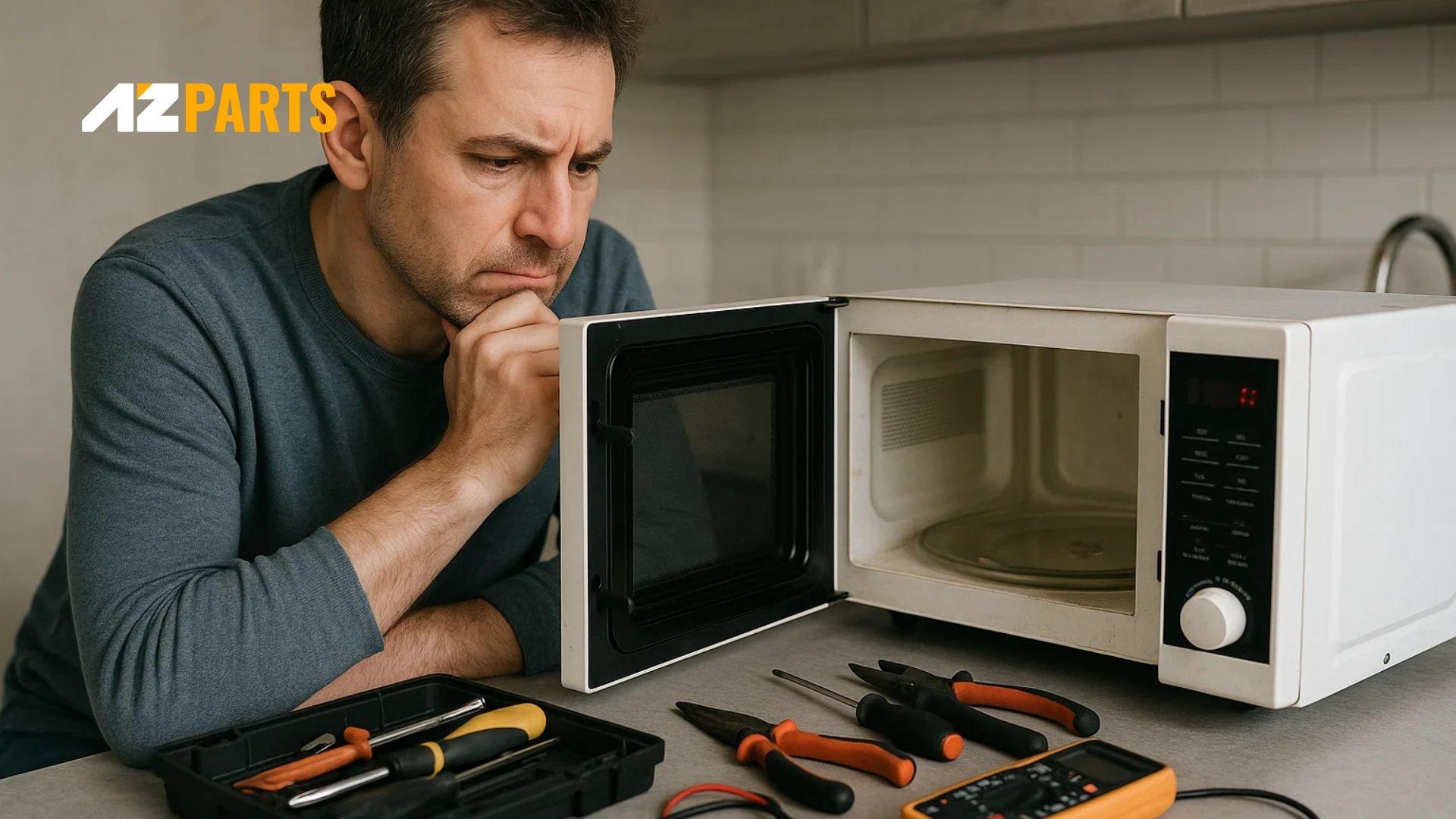
1. Key Factors That Influence the Decision
Making the right choice between repair and replacement requires careful consideration of several critical factors that directly impact both your wallet and daily convenience.
1.1. Age of the Microwave
The age of your microwave serves as the primary indicator for repair viability. Most microwaves have an average lifespan of 9-10 years with proper maintenance. If your unit is under 5 years old, repairs are typically worthwhile, especially if it's still under warranty. Microwaves between 5-8 years old fall into a gray area where the decision depends heavily on the specific issue and repair costs.
Units over 8 years old require more careful evaluation. While they may still function adequately, older microwaves often experience multiple component failures in succession. The magnetron, which generates microwaves, typically begins declining in efficiency after 7-8 years of regular use.
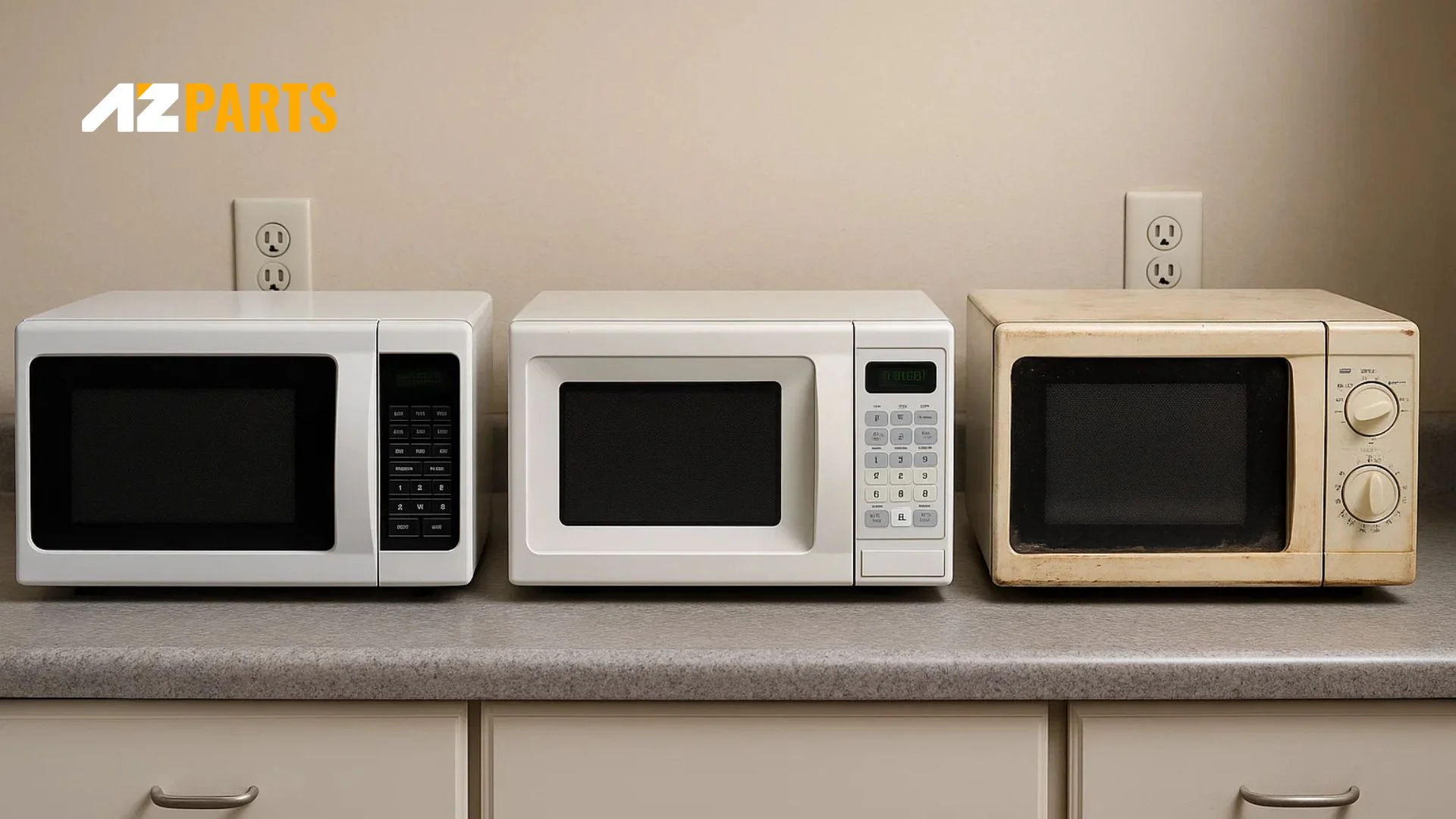
Age of the Microwave (Source: AZParts)
1.2. Type of Microwave
The type and quality of your microwave significantly influence whether repair makes financial sense. Built-in microwaves and high-end countertop models with advanced features often justify repair costs due to their initial investment and replacement complexity. Commercial-grade units designed for heavy use typically warrant repairs even when older.
Basic countertop models under $150 rarely justify expensive repairs, as replacement costs often equal or exceed repair expenses. However, specialty microwaves with unique features like convection cooking or specific size requirements may be worth repairing regardless of age.
1.3. Cost of Repairs
Professional microwave repairs typically range from $100-300, depending on the issue complexity and required parts. Common repairs include magnetron replacement ($150-250), control panel fixes ($75-150), and door mechanism repairs ($50-125). Labor costs vary by region but generally account for 60-70% of total repair expenses.
Always obtain detailed estimates before proceeding with repairs. If repair costs exceed 50% of a comparable new unit's price, replacement usually makes more economic sense. Factor in potential future repairs when evaluating current repair costs.
1.4. Frequency of Issues
Microwaves experiencing frequent breakdowns signal underlying reliability problems that often worsen over time. A unit requiring repairs more than twice yearly typically needs replacement, as cumulative repair costs quickly exceed replacement value.
Document recurring issues to identify patterns. Multiple electrical problems, repeated door seal failures, or consistent heating irregularities indicate fundamental component degradation that repairs cannot permanently resolve.
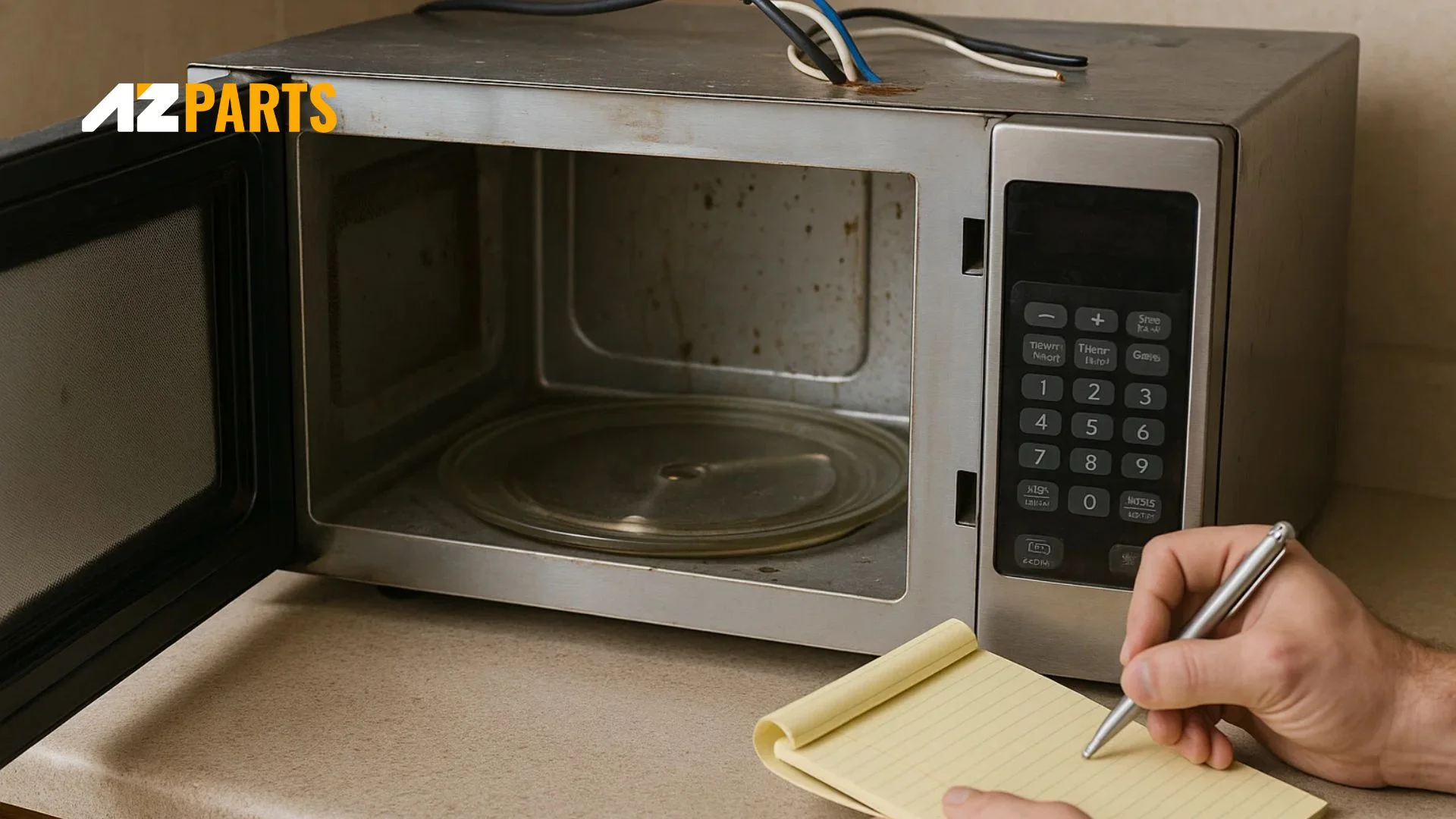
Frequency of Issues (Source: AZParts)
2. Benefits of Repairing Your Microwave
Choosing repair over replacement offers several compelling advantages that extend beyond immediate cost savings.
- Cost-effective: Repairing your microwave typically costs 30-60% less than purchasing a comparable new unit. Simple fixes like replacing a blown fuse or faulty door switch can restore full functionality for under $50 in parts and labor. Even major repairs like magnetron replacement often cost less than half the price of a quality replacement microwave.
- Convenience: Repairing eliminates the time and effort required for shopping, comparing models, and arranging delivery of a new unit. Most repairs can be completed within 24-48 hours, minimizing kitchen disruption. You also avoid the learning curve associated with new controls and features.
- Eco-Friendly: Repairing reduces electronic waste and conserves resources required for manufacturing new appliances. Microwaves contain valuable materials like copper, steel, and rare earth elements that benefit from extended use cycles. Choosing repair demonstrates environmental responsibility and supports sustainable consumption practices.
- Aesthetic consistency: Keeping your existing microwave maintains your kitchen's current design scheme and color coordination. Replacement units may not perfectly match existing appliances or cabinet configurations, potentially requiring additional modifications or compromises in kitchen aesthetics.
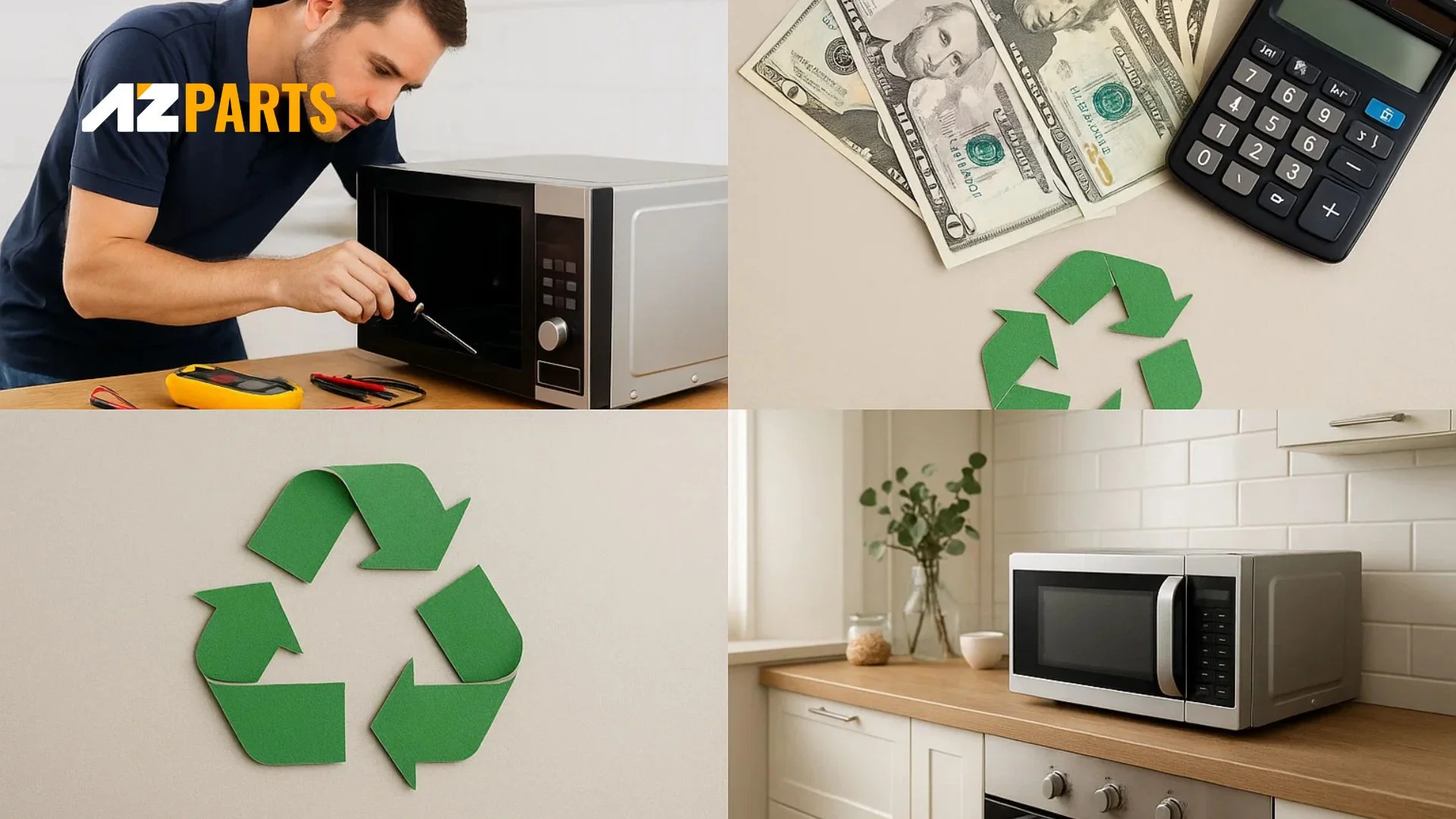
Benefits of Repairing Your Microwave (Source: AZParts)
3. When Replacing Makes More Sense
Despite repair benefits, certain circumstances clearly favor replacement over continued maintenance of an aging microwave.
3.1. Safety Tips
Safety issues should never be ignored or temporarily patched. Microwaves with damaged door seals, faulty interlock switches, or radiation leakage require immediate replacement. Electrical problems causing sparking, burning smells, or intermittent operation pose fire hazards that repairs may not fully eliminate.
Professional technicians can assess safety risks, but err on the side of caution with older units showing multiple warning signs. The potential consequences of microwave safety failures far outweigh any repair cost savings.
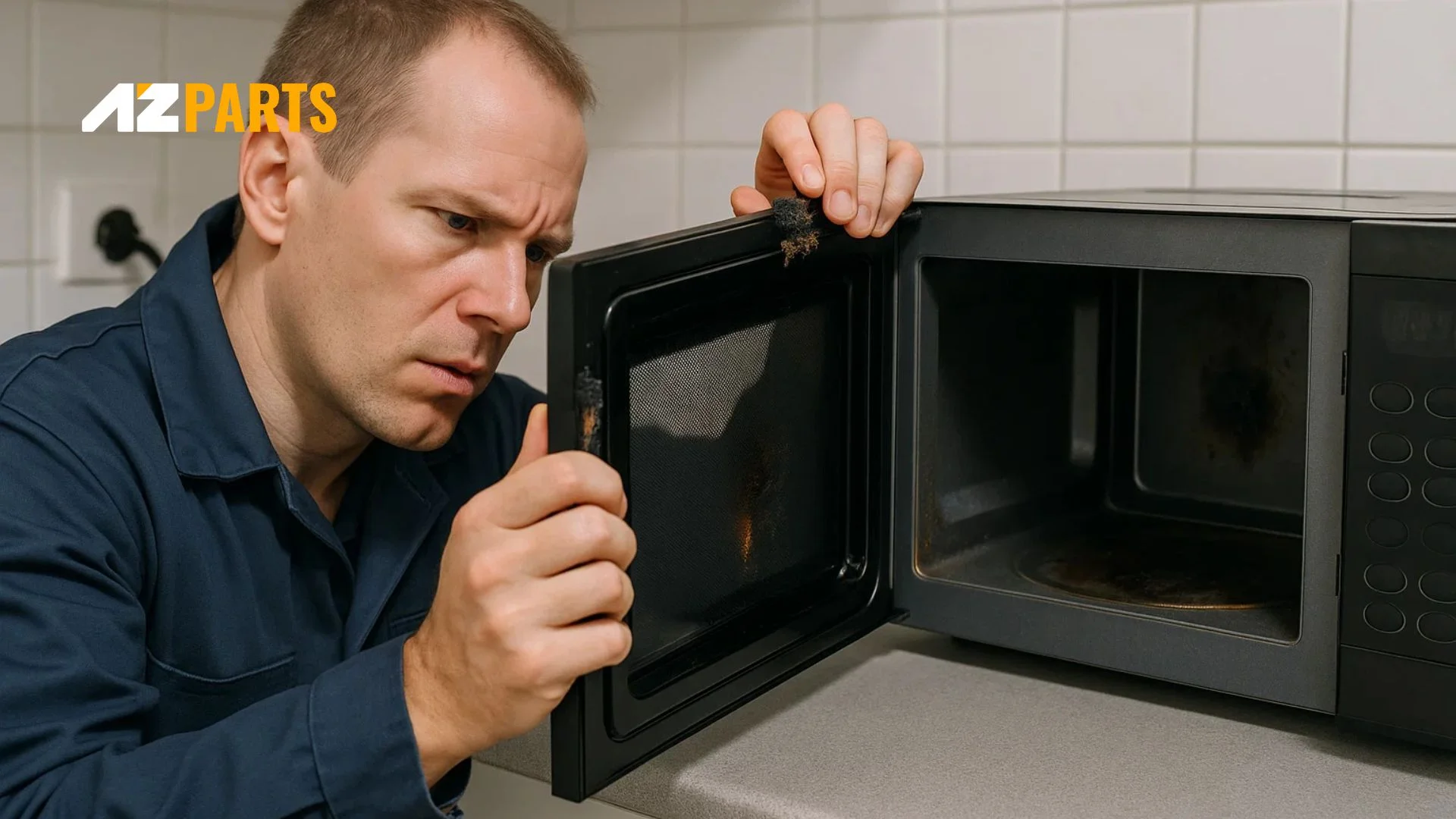
Safety rules should be followed closely (AZParts)
3.2. Outdated Tech
Older microwaves lack modern efficiency standards and smart features that provide significant long-term value. Energy-efficient models reduce electricity consumption by 15-25% compared to units over 10 years old. Advanced sensors, preset programs, and connectivity features enhance cooking convenience and results.
If your current microwave lacks basic features like sensor cooking, multiple power levels, or adequate interior lighting, replacement may improve your daily cooking experience sufficiently to justify the investment.
3.3. Design Upgrade
Kitchen renovations or design updates often create opportunities for microwave upgrades that repair cannot address. Size changes, color updates, or integration requirements may necessitate replacement regardless of current unit functionality.
Consider replacement if your microwave no longer fits your kitchen's aesthetic vision or functional requirements. Built-in installation options and drawer-style microwaves offer design flexibility that countertop repairs cannot provide.
3.4. Repair Impractical
Some repairs require specialized parts that are discontinued or prohibitively expensive to source. Complex electronic control boards, proprietary components, or structural elements may cost more than replacement value.
For common microwave issues, AZParts offers reliable replacement components including microwave filters, microwave glass plates, microwave turntable motors, and microwave fuses. These quality parts enable cost-effective repairs for many common microwave problems, extending appliance lifecycles while maintaining performance standards.
Complex repairs requiring specialized tools or extensive disassembly may prove impractical for average consumers, necessitating professional service that increases overall costs. The time investment required for complex DIY repairs may exceed the convenience benefits of repair versus replacement.
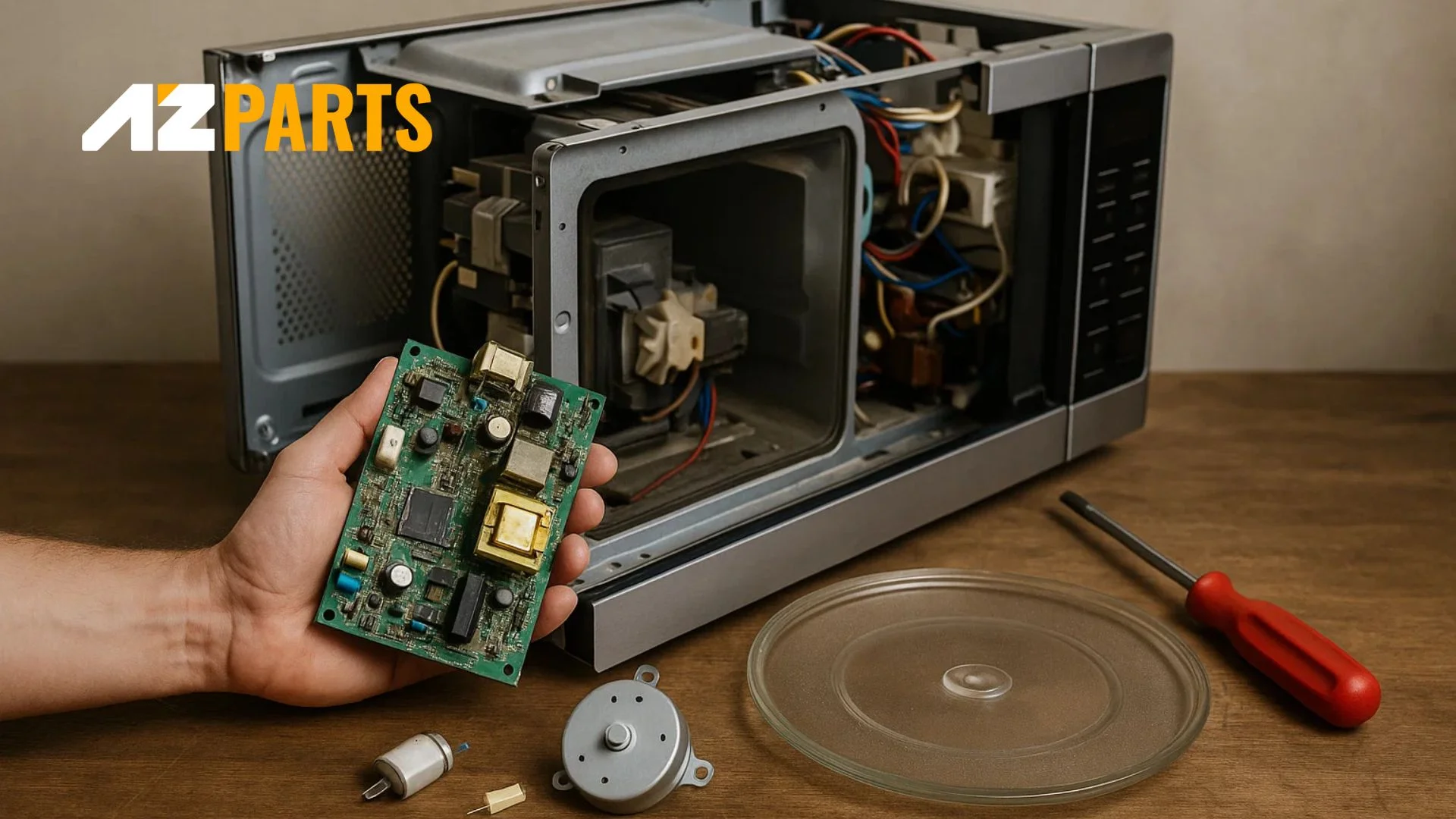
Repair too complex or costly (Source: AZParts)
4. FAQs
4.1. Do minor fixes like door switches justify repair?
Yes, minor repairs like door switches and latch mechanisms are typically cost-effective and straightforward. These components directly affect safety and functionality, making repair worthwhile for most microwaves under 10 years old. AZParts offers quality microwave door switches and latch brackets that restore proper operation without extensive labor costs. Door-related repairs usually cost $50-100 total and can extend your microwave's life significantly.
4.2. Is it dangerous to repair a microwave?
Microwave repair carries inherent electrical and radiation risks that require professional expertise. The magnetron and high-voltage capacitor retain dangerous electrical charges even when unplugged. Attempting DIY repairs without proper training and equipment can result in severe injury or death. Always consult qualified technicians for any repairs beyond simple external component replacement.
4.3. How long does a microwave last?
Well-maintained microwaves typically last 9-10 years with regular use. Commercial units may last 15+ years, while basic models often decline after 7-8 years. Lifespan depends on usage frequency, maintenance quality, and initial build quality. Regular cleaning and avoiding metal objects can maximize operational life.
4.4. Is it worth fixing a 15-year-old microwave?
Generally no, unless it's a high-end or commercial unit with exceptional build quality. Fifteen-year-old microwaves lack modern efficiency standards and safety features. Repair costs often approach or exceed replacement value, and additional failures become increasingly likely. Consider replacement for better performance and reliability.
4.5. Is it safe to fix your own microwave?
DIY microwave repair is not recommended due to serious safety hazards. High-voltage components can deliver fatal electrical shocks even when the unit is unplugged. Microwave radiation exposure risks and complex electrical systems require professional expertise. Limit DIY work to external cleaning and simple maintenance tasks only.
4.6. Is it cheaper to fix a microwave or buy a new one?
This depends on repair costs, microwave age, and replacement options. Repairs under $100 for units less than 7 years old typically justify the expense. If repair costs exceed 50% of comparable replacement value, buying new usually makes more sense. Factor in potential future repairs and improved efficiency when comparing total costs.
Deciding whether to repair your microwave requires careful evaluation of age, repair costs, safety concerns, and personal preferences. While repairs often provide cost-effective solutions for newer units with minor issues, replacement becomes more attractive for older microwaves with major problems or safety concerns. Consider the long-term reliability, efficiency improvements, and feature upgrades that new units provide.
When repairs make sense, choosing quality replacement parts ensures lasting results and continued safe operation. Ready to make the right decision for your microwave? Contact AZParts today for expert guidance and genuine microwave replacement parts that restore your appliance's performance.
Contact Info
Address: 8 The Green, Ste A, Dover, Delaware 19901-3618, United States
Email: support@azparts.com
Read more:
Microwave
Further Reading
Further Reading


